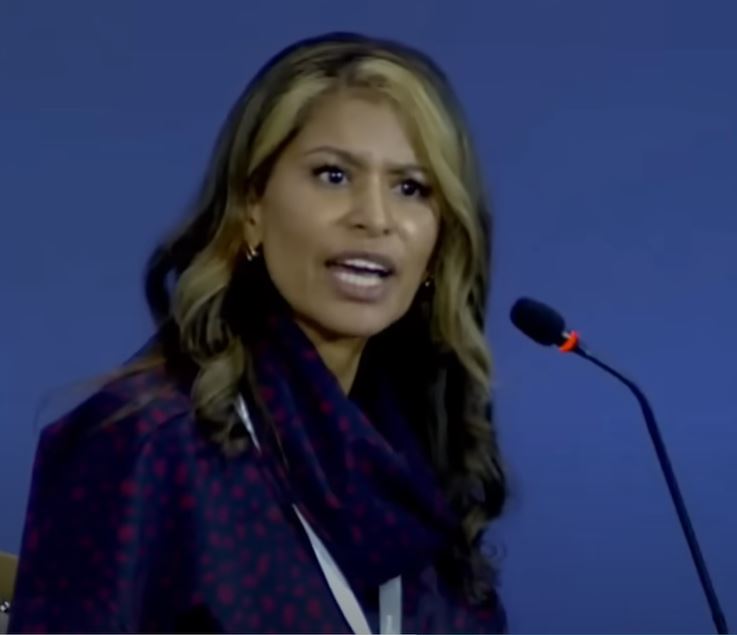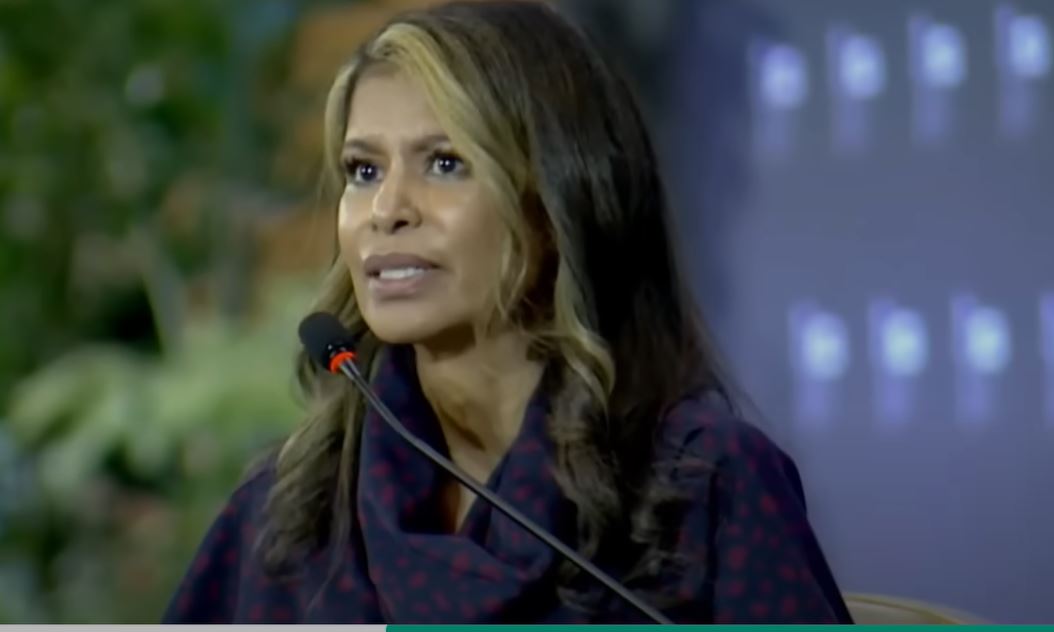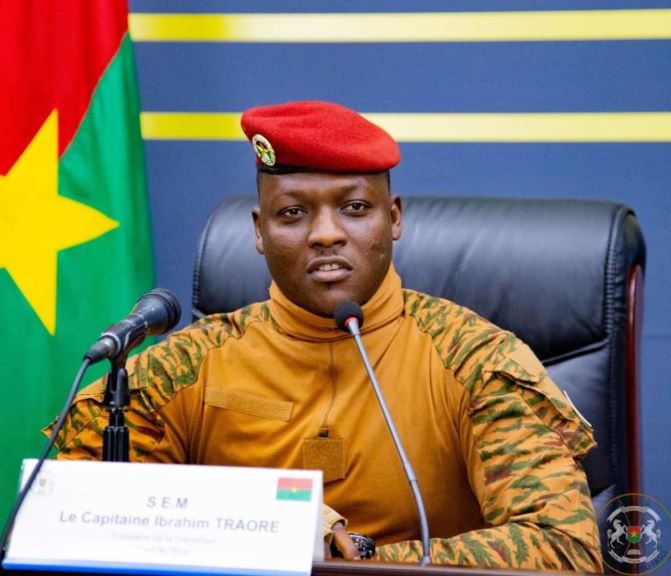### “Africa’s Awakening: A Bold Call for Unity in the Face of Injustice”

In a gripping and impassioned address, a brave African woman joined forces with Captain Ibrahim Traoré to expose the weaknesses of the African Union (AU) and demand urgent action against the injustices plaguing the continent. Her powerful words resonate with a generation yearning for change, calling for a united front against foreign intervention and a collective commitment to safeguard African sovereignty.
The backdrop of this clarion call is steeped in historical injustice. As the speaker recounted, during the tumultuous fall of Muammar Gaddafi in Libya, African leaders attempted to intervene diplomatically. Yet, they were met with a chilling ultimatum: “If you fly into Libyan airspace, we cannot guarantee your security.” This stark reality underscores a troubling narrative—African leaders were sidelined in their own continent, leaving Libya in chaos that persists to this day. “What is Libya today?” she implored, emphasizing that the consequences of inaction are dire and enduring.

The discussion swiftly pivoted to the haunting memories of the Rwandan genocide, where a failure to act led to the tragic loss of a million lives. “It happened on our watch,” she lamented, highlighting the responsibility of African leaders to rise against oppression and defend their people. Today, as disturbing narratives around “white genocide” in South Africa emerge, the urgency for a cohesive African response grows stronger.
The speaker’s fiery rhetoric struck a chord with the youth, particularly Generation Z, who are increasingly aware of their leaders’ failures. “The honeymoon is over,” she declared, urging African presidents to reject the military partnerships with former colonizers that threaten to undermine their sovereignty. The call for a united Africa—a single army, a single currency—was not just aspirational; it was a demand for immediate action to protect the continent from external manipulation.

The former South African president, Thabo Mbeki, further illuminated the inadequacies of the AU, questioning the effectiveness of its institutions that have often failed to take decisive action in the face of crises. “What happens after major policy positions are taken?” he asked, lamenting a lack of accountability and transparency that has plagued the continental body.
The speaker’s rallying cry is not just a condemnation of past failures but a clarion call for the youth to reclaim their power. “We are wide awake,” she asserted, challenging the older generation to step up and protect their own. The message was clear: the time for passive leadership is over, and the youth demand accountability and action.

As the conversation unfolded, it became evident that the future of Africa hinges on unity and solidarity. The vision of an integrated continent, where borders dissolve in favor of collaboration, emerged as a beacon of hope. The speaker urged African nations to come together, to dismantle the barriers that have long divided them, and to build a future where opportunities abound for all.
With the stakes higher than ever, this urgent message reverberates beyond the confines of the summit halls. It is a call to action for every African to rise, to speak out, and to unite in the face of adversity. As history has shown, only through solidarity can the continent hope to break free from the chains of colonial legacy and forge a new path toward prosperity and empowerment.
As the world watches, Africa stands at a crossroads. Will it heed the call to unite and protect its own? Only time will tell, but one thing is certain: the revolution is here, and the voices of the youth will not be silenced.


